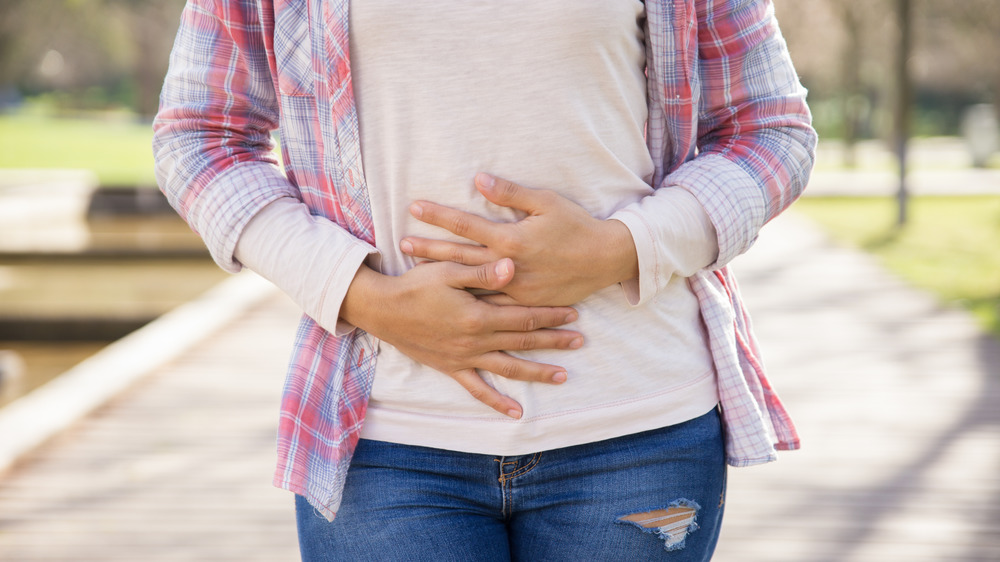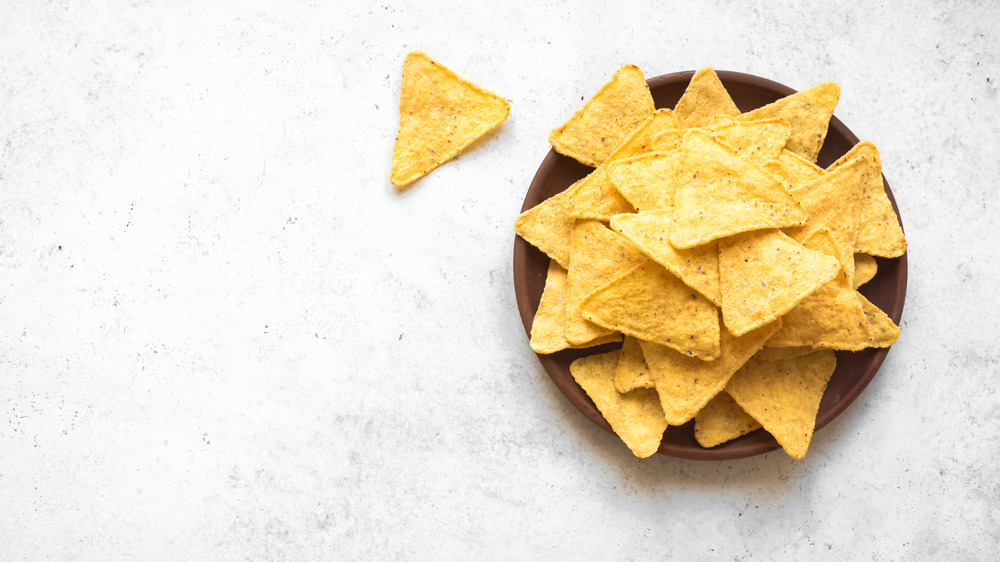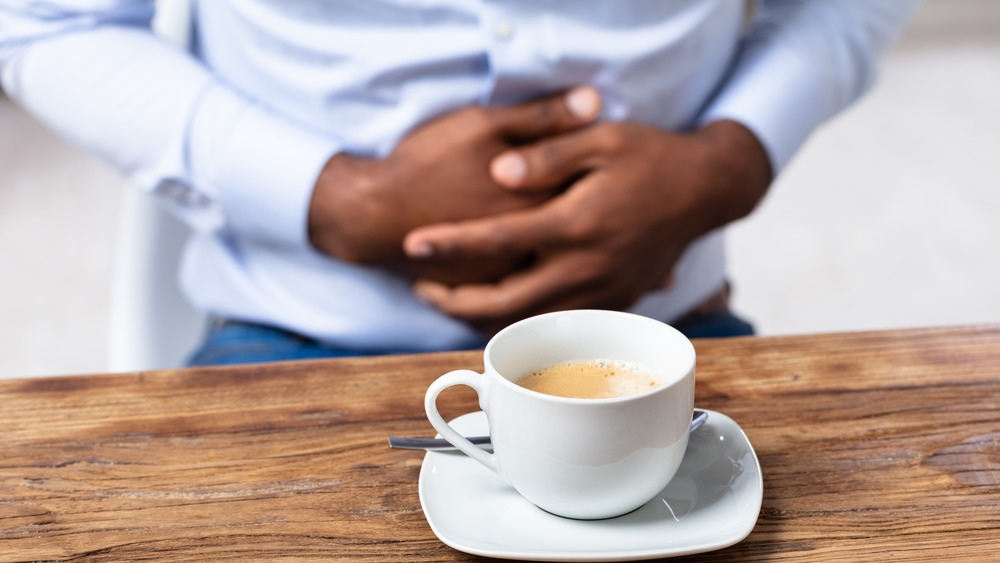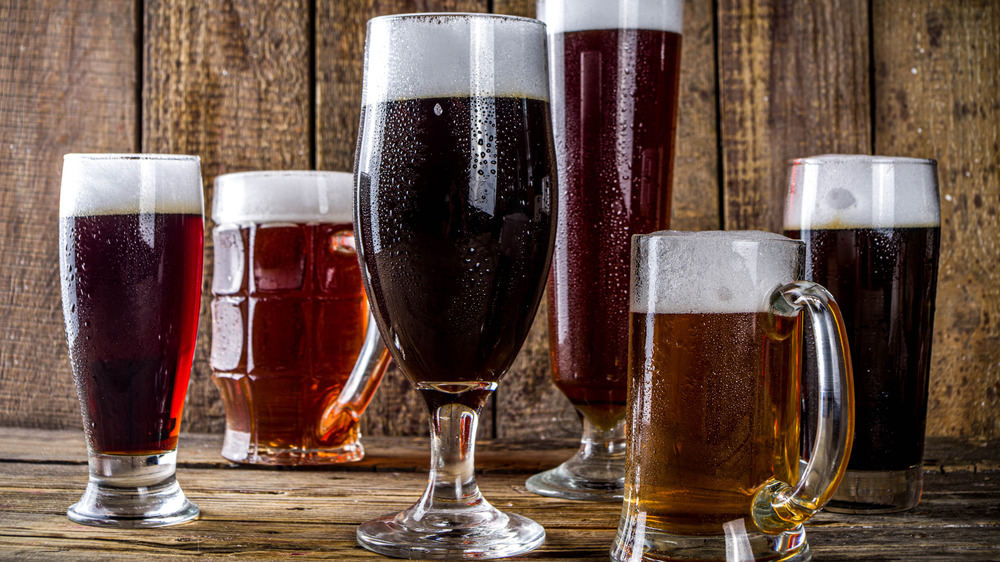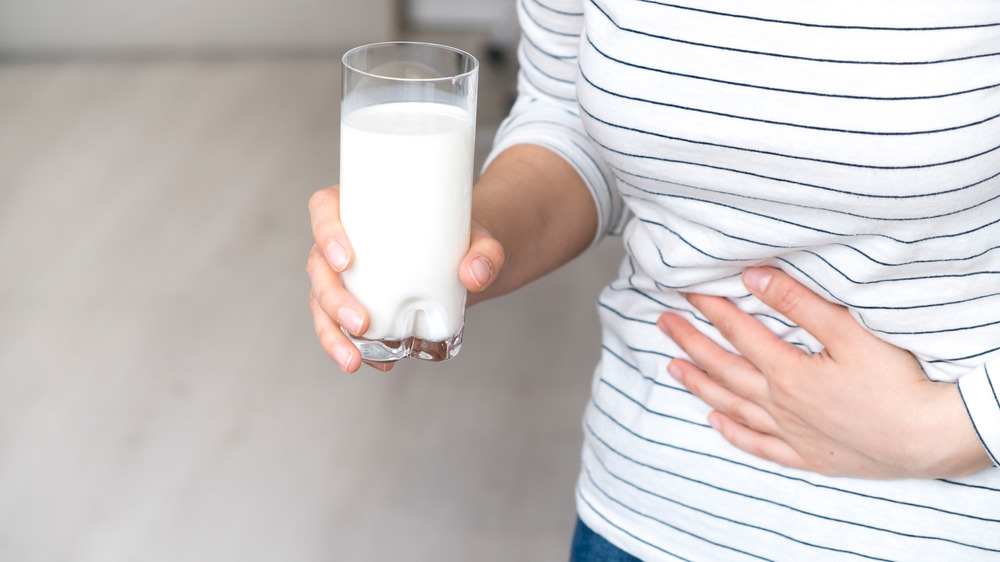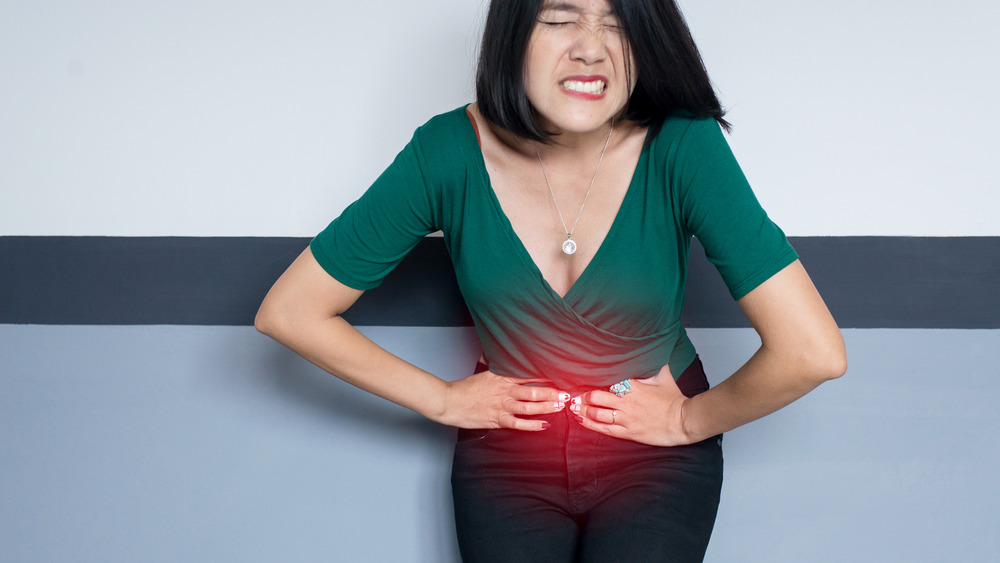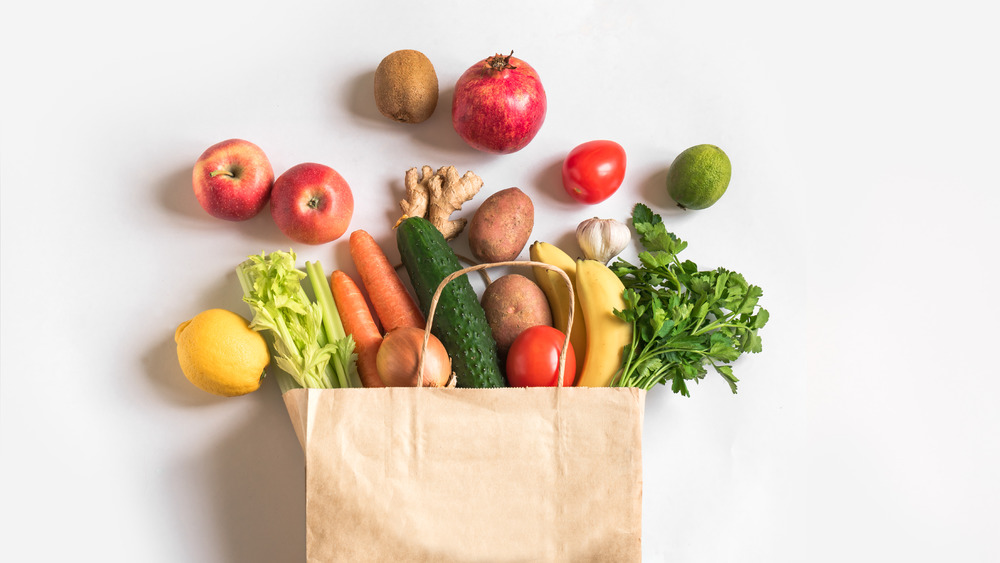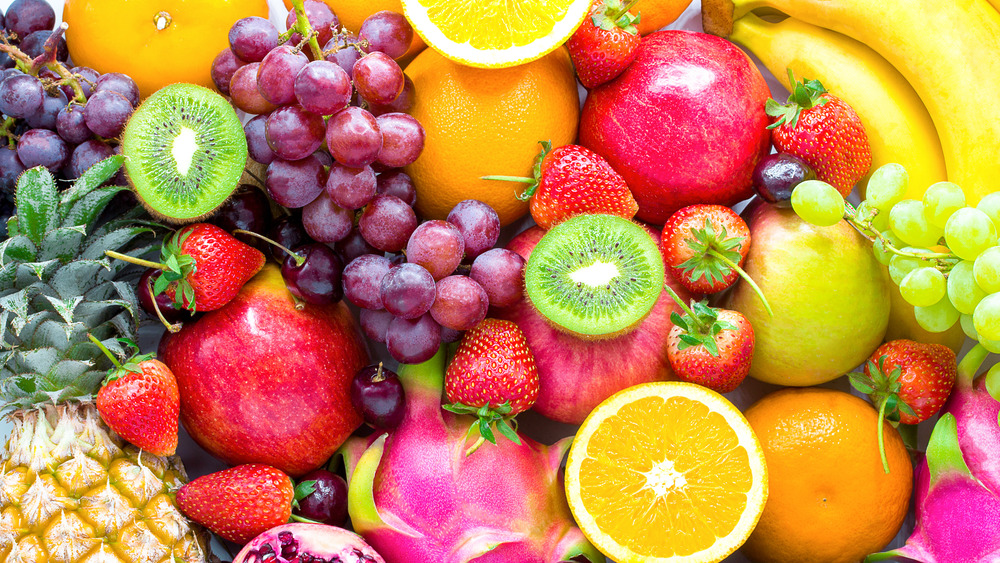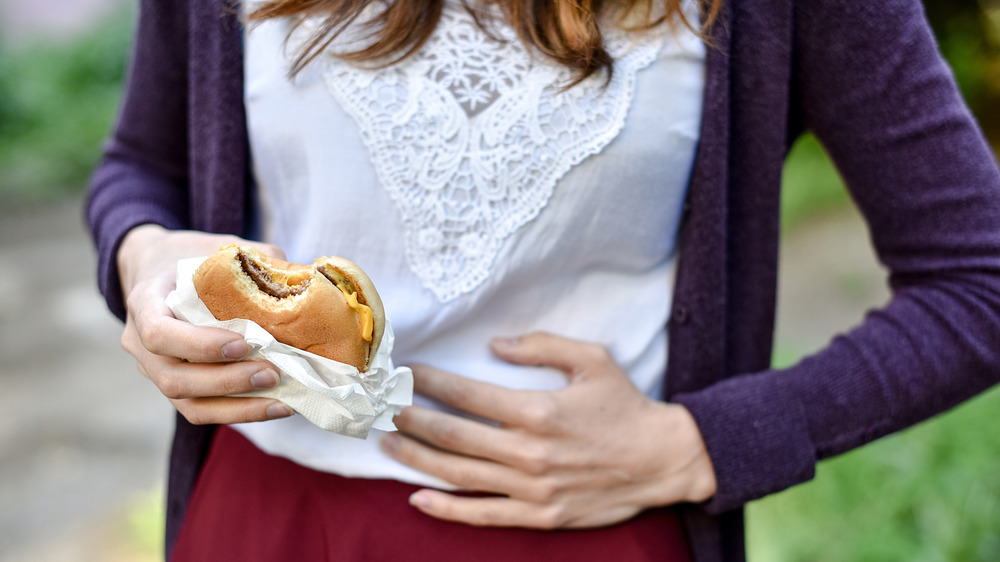If You're Having Constipation, This Might Be Why
If constipation is a problem for you, know that you're not alone. Constipation — having difficulty or being unable to poop for an extended period of time — is a common and growing problem.
According to a 2014 study published in the American Journal of Gastroenterology, the number of hospitalizations for constipation more than doubled between 1997 and 2010, and chances are it's increased even more since then. Keep in mind that only accounts for patients with constipation so severe that they literally went to the hospital for it.
For many people, constipation is more of an annoying discomfort than an issue worth going to the emergency room for. Going a day or two without pooping is one thing, but not being able to empty your bowels for several days at a time can be extremely uncomfortable, and can have life-limiting effects. If you struggle with occasional or regular constipation and haven't figured out why or how to prevent it from happening, here are some things that may be contributing. Of course, if you're having serious trouble with constipation, you should consult your doctor.
You may be constipated because you're eating mostly processed foods
Eating processed foods from time to time may not cause you any issues, but if such foods make up the bulk of your diet and you're skimping on whole foods like fruits, veggies, and whole grains? Well, that could result in constipation.
According to John Fortunato, a gastroenterologist at Wake Forest University Baptist Medical Center, eating mostly processed foods means you'll be getting lots of fat and sugar, but not much fiber or fluids. This can cause constipation, the expert explained to Everyday Health. Processed foods are generally very low in fiber, a carbohydrate compound found in plant foods that cannot be digested and instead passes through your digestive tract and out through your waste (via Live Science).
Although our bodies don't get nutrients from fiber, it's still essential to consume. When it comes to bowel movements, fiber does double duty: insoluble fiber is "roughage" that bulks up stool, while soluble fiber gels when mixed with liquid and makes the stool easier to pass, Healthline explained. If you eat an extremely low-fiber diet — such as one made up of primarily processed foods — your bowels don't get that extra boost, and it's possible that you may become constipated.
Drinking too much coffee can lead to constipation
Okay, this one is a little bit confusing. On the one hand, caffeine is a stimulant. Drinking coffee or other caffeinated beverages can help you poop because caffeine directly stimulates your colon (your large intestine, where waste is stored) and can make it contract, pushing stool towards your rectum, a study published in Diseases of the Colon & Rectum explained. If you're a regular coffee drinker, you've probably noticed that a cup or two in the morning can give you the urge to poop.
But, here's where that gets complicated. Too much caffeine, from drinking several cups of coffee in the morning or sipping caffeinated drinks all day long, can actually dehydrate, said John Fortunato, a gastroenterologist at Wake Forest University Baptist Medical Center. And this dehydration can cause constipation, he told Everyday Health.
Instead of sipping coffee all day, have a cup or two in the morning — again, that could help you poop! — along with a big glass of water. Then, sip water or other caffeine-free beverages throughout the day to keep you properly hydrated.
Drinking alcohol can lead to constipation
A big culprit when it comes to constipation? Booze. On the one hand, alcohol overwhelm your digestive tract and cause your digestive system work more quickly than usual, swiftly passing things through your small and large intestine and leading to diarrhea (via Medical News Today). Your body doesn't have time to reabsorb the fluid that pushes waste along in the digestive tract before eliminating it, so your stools get loose and watery.
On the other hand, regularly consuming alcohol can also lead to constipation. It's a diuretic, which means that it causes your body to make more urine than it usually would, according to Medical News Today. Because of this, drinking alcohol leads to dehydration. When you're dehydrated, your body reabsorbs as much liquid as possible, which leads to hard, dry stool that's really difficult to pass. Yikes.
Yet another problem with alcohol is that it irritates your intestinal lining, causing inflammation and preventing your body from absorbing important nutrients. This can lead to short-term diarrhea, but it can also lead to long-term digestive problems that result in constipation, Medical News Today explained.
You may be constipated if there's a ton of dairy in your diet
As long as you're not lactose intolerant — a condition that means your body can't properly break down lactose, the main carbohydrate found in milk and other dairy products — it's fine to include dairy in your diet. In fact, milk is a great source of protein and calcium, according to Harvard's The Nutrition Source.
However, too much dairy from milk, cheese, ice cream, or other sources could leave you feeling constipated. Although it's not well understood exactly why this happens, some research shows an association between high dairy consumption and constipation. In a 2013 crossover trial published in Nutrients, researchers found that drinking cow's milk was associated with constipation in children, whereas soy milk was not.
Of course, this was a small trial and it didn't look at the effects of cow's milk on constipation in adults. Still, WebMD recommends that anyone who suffers from constipation should cut back on milk and cheese, as these things are hard for some people to digest and may make the problem worse. Instead, they recommend fermented dairy products like kefir and yogurt, which contain strains of bacteria that might actually help relieve constipation.
Regularly using laxatives can eventually lead to worse constipation
Laxatives treat constipation in one of two ways. Either they soften stools to make them easier to pass or they stimulate the large intestine to push the stool out (via Cornell Health). Laxatives can be great for relieving occasional constipation. However, using laxatives too often can actually cause more constipation.
Why is this the case? Because stimulant laxatives override your body's natural mechanisms by sending a signal to your large intestine telling it to contract, they can actually cause you to lose natural muscle and nerve response, according to Cornell Health. Eventually, your large intestine muscles just become dilated (stretched) and weak, because they're used to the extra stimulation of a laxative and can't push stool out on their own without it.
The result? You need to keep taking more and more laxatives in order to be able to poop, and because of that vicious cycle, you become totally dependent on them. Eventually, laxatives may even stop working altogether. Instead of relying on laxatives for constipation relief, try making lifestyle tweaks like changing your diet or getting regular exercise.
Constipation can be the result of a sedentary lifestyle
It may sound overly simple, but moving around can help your bowels move, too. According to Harvard's Healthbeat, people who exercise regularly are unlikely to develop constipation because the large intestine responds well to physical activity.
"Good muscle tone in general is important for regular bowel movements," the article stated. Your abdominal muscles and your diaphragm (the muscle located just below your lungs) both play important roles in bowel movements because they help push food through your digestive system and waste through your bowels. Weak abdominal muscles and a weak diaphragm won't do this job nearly as well as strong muscles, which could contribute to constipation.
If you're already active, experts say that doing more exercise probably won't have any additional benefits. However, if you're sedentary and often feel constipated, try adopting a regular exercise routine. It doesn't need to be an intense routine, either — even walking regularly can help strengthen your abdominals and your diaphragm (aka your core) and get your bowels moving. If this doesn't help with constipation, consider making appropriate changes to your diet and discuss the problem with your doctor.
Irritable bowel syndrome may be the reason for your constipation
Irritable bowel syndrome (IBS) is a common but poorly understood condition. It's a syndrome and not a disease, meaning that it's defined a group of symptoms as opposed to a specific condition with a specific cause. People with IBS experience abdominal pain and discomfort due to digestion and bowel movements, constipation, diarrhea, and other hard-to-manage digestive symptoms (via Mayo Clinic). The good news is IBS doesn't lead to long-term damage like changes in intestinal tissue or increased risk of colorectal cancer. The bad news is that it can be extremely uncomfortable and painful.
According to Harvard's Healthbeat, some people with IBS have sluggish bowel movements or strained bowel movements. Other people with IBS alternate between bouts of constipation and bouts of diarrhea, while some may only experience one or the other. If you're often constipated and can't figure out the cause, you could have IBS. Your primary care doctor or a gastroenterologist can help you figure out whether or not you have IBS and can make suggestions for how to treat or manage the condition. While there's no "cure" for IBS, and different people respond differently to treatments, lifestyle changes can help.
Traveling can lead to constipation
To some, it may sound silly that traveling can cause constipation. To others, it will likely sound all too familiar. While it's not necessarily the traveling itself — spending hours in a car or on an airplane — that's causing your constipation, being away from home can wreak havoc on your bowel movements.
"There are a lot of habits related to comfortable bowel movements," Dr. Sarah Vogler, a colorectal surgeon, told the Cleveland Clinic. "Just a change in what you eat or drink can affect your digestive system. Even switching the bathroom that you use ― to one that isn't your own ― can cause anxiety for some people because it takes them out of their regular routine."
Vogler recommended sticking to as normal a routine as possible while traveling. Eat around the same time you usually would, and if constipation has been an issue for you in the past, try to eat your usual foods even when you're away from home. Drinking plenty of water is also helpful, as is staying active. Carry a water bottle with you on your travels, and explore new places by walking instead of driving.
Constipated? You may not be drinking enough water
Dr. Sarah Vogler, a colorectal surgeon, told the Cleveland Clinic that one of the causes of constipation is dehydration. When your body is dehydrated, it reabsorbs water from your large intestine, leaving your stool dry, hard, and extremely difficult to pass.
The obvious solution? Drink plenty of fluids. According to the Mayo Clinic, that's about 15.5 cups per day for men and 11.5 cups per day for women. Keep in mind, though, that not all of these fluids have to come from water. Other caffeine-free, non-alcoholic beverages also help keep you hydrated, as does the water in food. In fact, roughly 20 percent of your daily fluid intake comes from foods, not drinks.
If you love a morning cup of coffee or an evening glass of wine, drink a big glass of water alongside these dehydrating beverages. And drink water all day long with and between meals to make sure you're getting enough.
You may not be eating enough fruits and vegetables if you're frequently constipated
Fruits and vegetables are very high in fiber, a carbohydrate compound found in plants that passes through your digestive system without being absorbed. As such, they help to keep you regular (via Verywell Health).
When you eat fruits and vegetables, you should aim to eat them with the skin on, as the skin contains much of the insoluble fiber. Eating a variety of fruits and vegetables — at least five servings per day, as recommended by the 2015-2020 Dietary Guidelines for Americans — means you'll likely get plenty of fiber, both soluble and insoluble. This will keep things moving through your digestive system and make your stools not only softer and easier to pass, but also more substantial and more frequent.
Experts recommend that if you don't currently get enough fiber, you should increase your consumption slowly, by about 20 to 25 grams (or about one serving of fruit or vegetable) per week to prevent gas and bloating (via Verywell Health).
Eating too many fruits and vegetables can lead to constipation
Eating adequate fruits and vegetables is a great way to avoid constipation. However, eating too many of them can actually make your constipation worse. Fruits and vegetables are high in insoluble and soluble fiber, which can bulk up and soften your stool, but if you're already constipated, loading up on fruits and vegetables (or other high-fiber foods like beans and legumes) may complicate matters.
Sarah Vogler, a colorectal surgeon, told the Cleveland Clinic that eating high-fiber foods when you're dehydrated (a common cause of constipation) can actually make your gas, bloating, and constipation even worse. It's like creating an even bigger pile of waste on top of an already backed-up system, which can be extremely uncomfortable.
Instead of going wild with produce, Vogler recommended that people with constipation eat one to two servings of fruit and one to two servings of vegetables each day, while also making sure to drink plenty of fluids.
If you don't go to the bathroom when you need to, you risk constipation
Our bodies are smart. Deny yours the opportunity to poop when it needs to, and it might just stop trying to poop regularly. According to Harvard's Healthbeat, people who frequently ignore the urge to go may eventually stop feeling that urge. And eventually, that can lead to pretty serious constipation.
If you're uncomfortable pooping in public bathrooms, it might be tough to allow yourself to poop when you need to. One idea is to try to find a private bathroom at your office or at the places you frequent, instead of a large bathroom with stalls where others might be nearby. Try relaxing as much as possible while you're in the bathroom as well.
If pooping in public seems truly impossible to you, try to get into the habit of always pooping before you leave the house. Get up early enough so that you have time for breakfast, water, coffee, and maybe even a 5-minute workout. All of these things can promote bowel movements, so that you can go before you head out for the day.
You may be constipated due to stress and anxiety
Stress and anxiety are harmful in so many ways. One such way? Too much anxiety or stress can lead to constipation. According to Healthline, stress has an effect on your stomach and bowels and might cause constipation. On the other hand, chronic constipation (the type that happens often and for long periods of time) can actually create more anxiety, because it's uncomfortable and can leave you feeling helpless.
Why does stress lead to constipation? According to Healthline, your bodily functions are controlled by your autonomic nervous system, which helps your body deal with stress and also communicates with your gastrointestinal tract. When you're very stressed or anxious, your nervous system focuses its resources on fighting that stress, which means it doesn't have the resources to focus on promoting digestion. As a result, your digestion slows to a crawl and you may become constipated.
Over time, stress can also cause inflammation in your digestive tract, which in itself may cause constipation because your intestines aren't as effective in contracting and creating bowel movements. If you're stressed, talk to a professional about ways you may be able to control your stress or anxiety.
Eating too much fatty meat can cause constipation
There's little evidence that low-carb, high-fat diets like Atkins and the keto diet are health promoting, although so many people follow them (via Harvard Health Blog). In addition to raising your risk of heart disease due to high amounts of saturated fat typically eaten on these diets, eating lots of fat and protein without adequate fiber (from carbs like fruits, vegetables, legumes, beans, and whole grains), the National Institute on Aging explained that such diets can cause uncomfortable constipation.
This applies to diets high in processed foods and low in whole, plant-based foods. It also applies to diets high in meat, particularly fatty meat like steaks, burgers, and bacon. These foods are high in protein and fat, but also completely devoid of fiber. There's no need to cut meat completely out of your diet in order to relieve constipation. Instead, eat meat alongside high-fiber plant-based foods to keep your digestive system running and your bowels moving regularly. This will help prevent constipation and ensure you're getting the nutrients you need.
